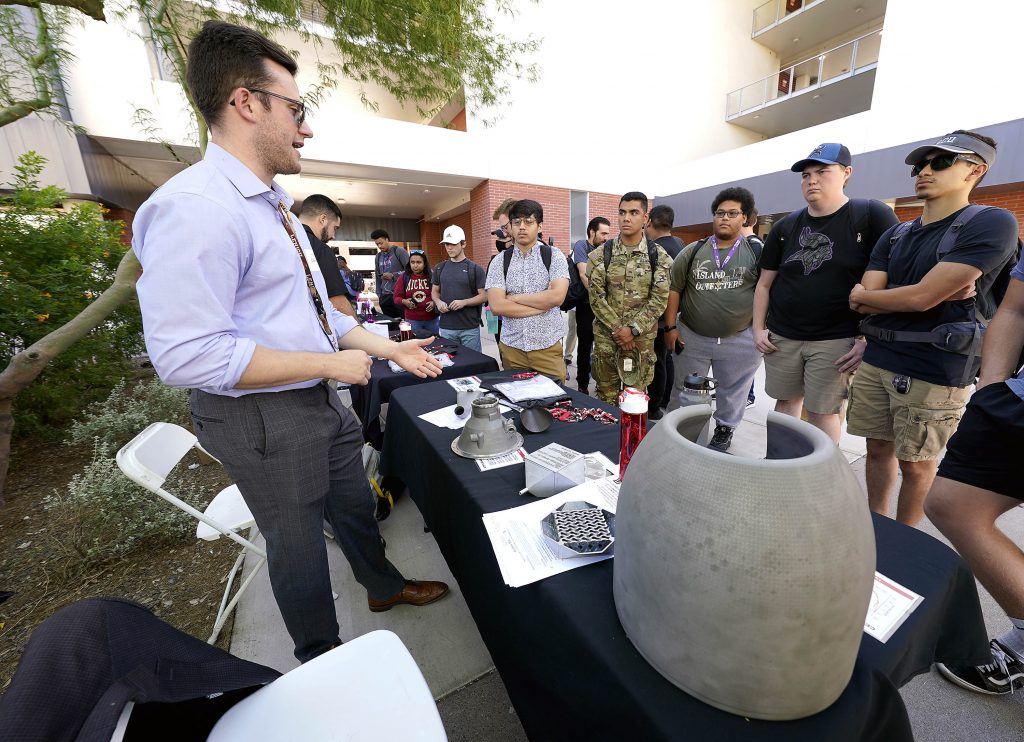
Photos by Ralph Freso
Winter Gerlach let out a gasp when she heard about how Honeywell is producing parts for the Orion spacecraft and the planned Artemis missions.
“I got very excited,” Gerlach, beaming, said Tuesday when she learned about the Glendale, Arizona, facility’s involvement in the missions, which will carry humans to the moon for the first time in more than 50 years. “I’m fascinated by aerospace. I’d love to find a way to incorporate IT. I’d love to work for Honeywell.”
The Grand Canyon University senior information technology major was at the Cyber Center of Excellence, one of multiple locations for Honeywell Day at GCU.
More than a dozen representatives from the company spread out across the campus over eight hours, dropping into more than 10 engineering and technology classes for presentations, helming panel talks, visiting with students at tabling locations and gathering resumes.
While GCU students can stop by the weekly Companies on Campus events or hobnob with potential employers at various job fairs, the full-immersion Honeywell Day was the first time Strategic Employer Initiatives & Internships arranged a company visit to campus on this scale.
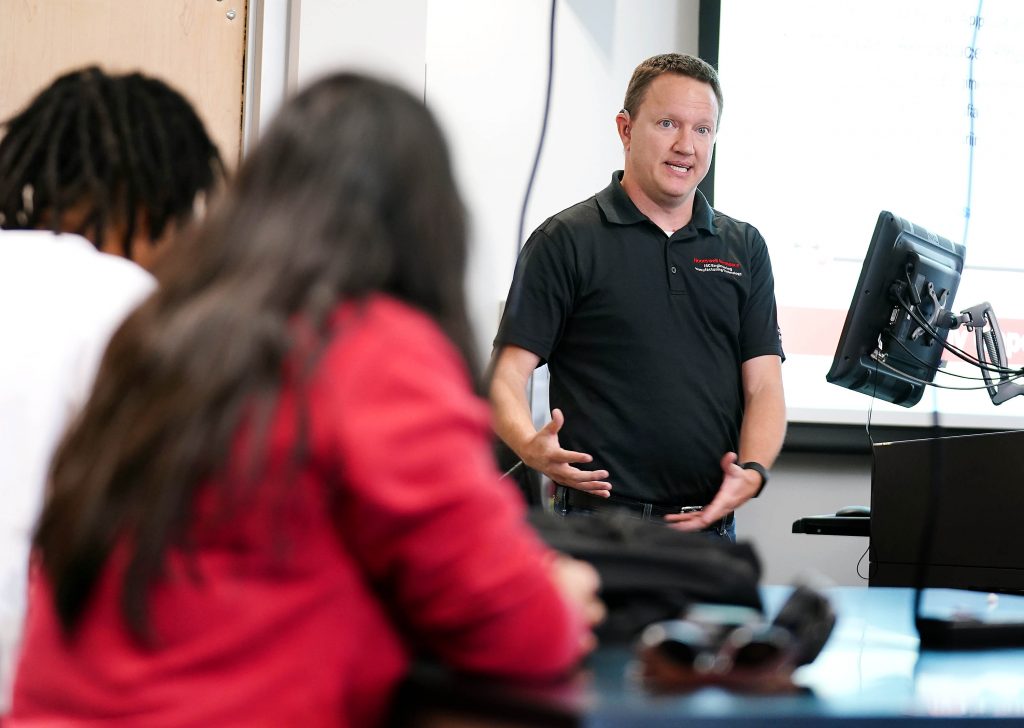
“This is definitely the first of its kind that we’ve had on campus,” said Ruben Arangure, SEI’s Employer Engagement Program Manager. “We really want to show off just the vast opportunities these bigger companies have, not just in one particular area, like engineering, but really open it up to all students to see what opportunities are available.”
Opportunities are brimming at Honeywell, a Fortune 100 company that develops aerospace products, building technologies, software and more with $34.4 billion of sales in 2021. It touts more than 100,000 employees at facilities around the world, including at four Phoenix locations — two near Sky Harbor Airport, one in Tempe and another in Glendale.
“Honeywell is a BIG company,” said Rob Loy, Head of Technology for the College of Science, Engineering and Technology. “They have a lot of openings across a lot of different departments, so you can’t just say I’m hiring for a software developer and just go talk to that one class. They’re hiring for engineers. They’re hiring for developers. They’re hiring for security. They have a broad reach, and since they were coming, it just made sense to have that many people here from Honeywell on campus across all different departments.”
David Kim, Honeywell advanced project engineer, said the company is looking at GCU as a strategic partner. So for Honeywell Day, the company “wanted to send people out here to build up that next generation of good engineers,” or as Honeywell likes to call them, “futureshapers.”
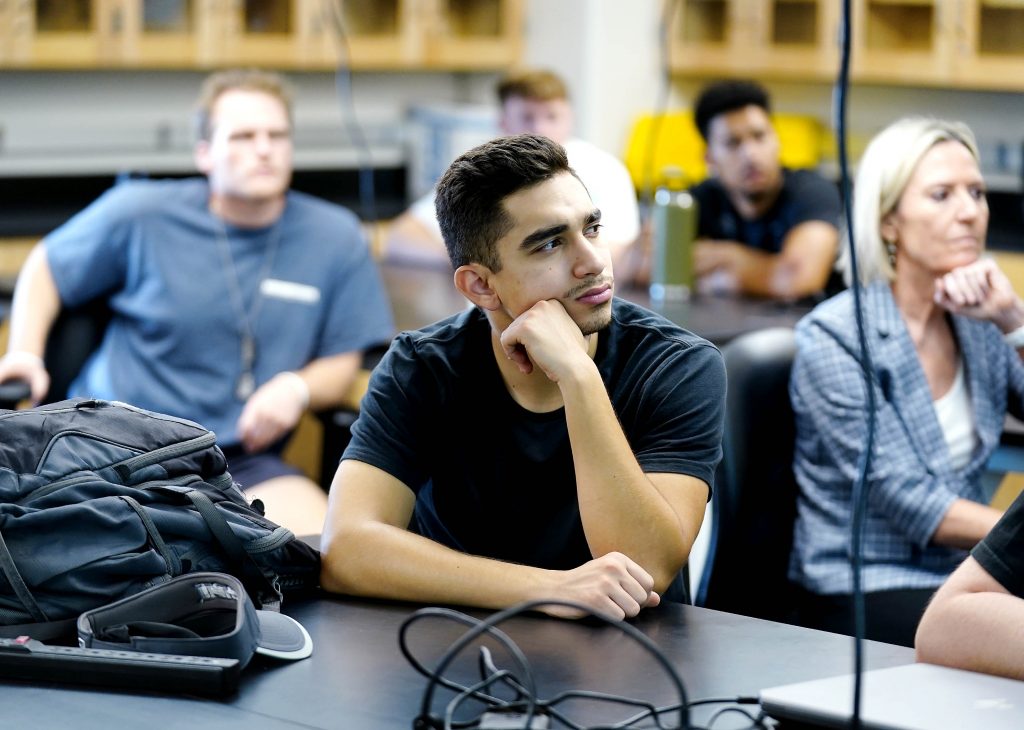
Kim spoke to electrical engineering instructor Luciano Albuquerque’s senior-level electronics and devices class, sharing this little nugget about the company that he heard when he first started an internship at its Torrance, California, location in 2019:
“What I was told when I first came on as an intern that was pretty interesting was that every airplane, especially every commercial airplane that you’ve ever flown on, has at least one Honeywell component on it.”
Honeywell’s presence on airplanes, he said, runs from “tip to tail,” from the cockpit interface to the IntuVue RDR-4000, a weather radar sensing unit, to advanced artificial intelligence technologies that are “basically the future of self-flying airplanes.”
“Some of our core strengths are pushing the boundaries that are acceptable for aerospace,” said Kim, who also told students about the company’s additive manufacturing lab. “Think of it as metal-free printing. How do you really make complex geometries that are cost effective and as producible as possible? We’re a pioneer in that.”
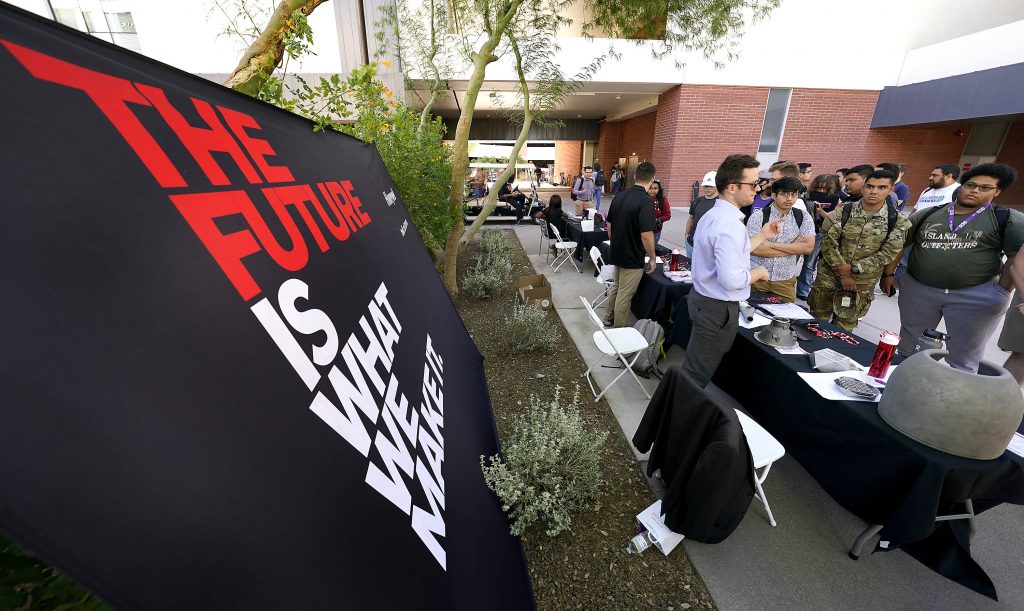
He also shared with the students how Honeywell is creating a ton of cutting-edge electronics products and new software for the aerospace industry.
“Aerospace is a little bit behind tech and all these other big industries because it has so many safety protocols, but our electronics engineers are really paving the path for the digital transformation of aerospace.”
He touched on Honeywell’s dedication to inclusivity, diversity and sustainability — it is committed to being carbon-neutral in its facilities and operations by 2035 — and he addressed its eight behaviors, or fundamental values: a passion for working; being a zealot for growth; thinking big, then making it happen; acting with urgency; being courageous; going beyond; inspiring greatness; and becoming your best.
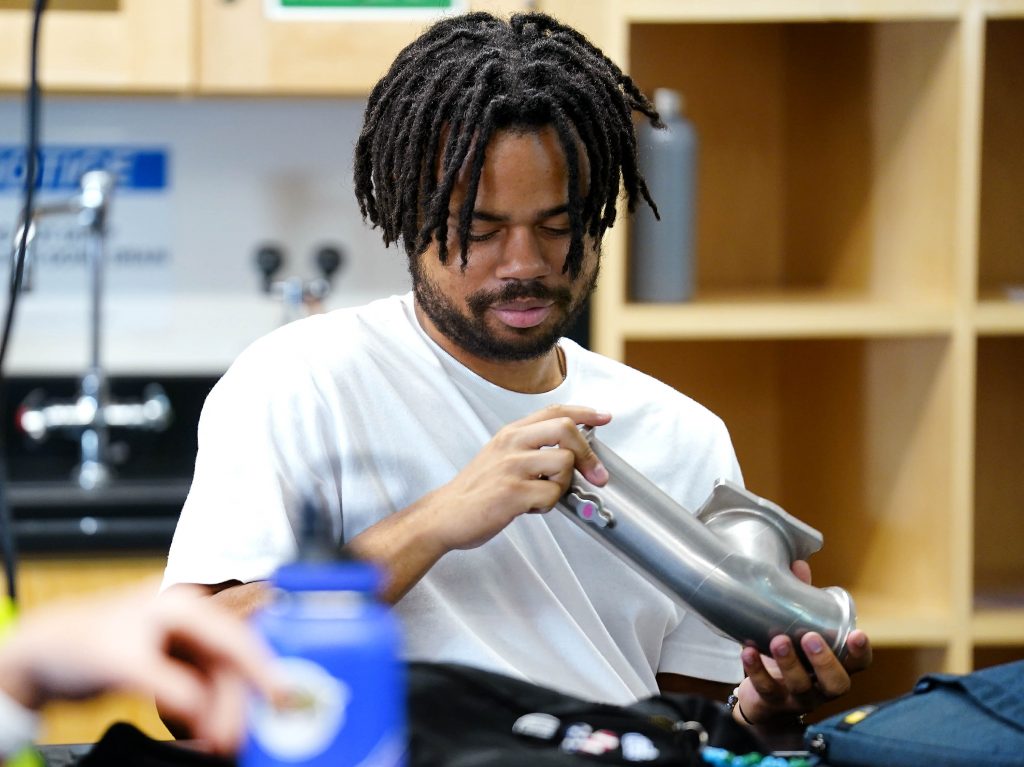
And Kim detailed the company’s Global Internship Program, an 18-month rotational program divided into three six-month stints in which interns jump into three different jobs to help them, in part, determine what they really might want to do at the company.
Honeywell senior advanced project engineer Adam Wojtunik graduated in 2019 and “being three years out of school, I remember being in these students’ shoes,” he said. “I’m really passionate about showing empathy” and helping them get where they want to go.
One of the Honeywell engineers featured at an 11 a.m. panel talk was Brendan Kaiser, a GCU alumnus who was hired at the company’s Glendale site even before he graduated.
He told students what he loved about his job: that that the company lets him bring his laptop home to work remotely when he needs to, such as when he had to care for an ailing family member.
When I say that I work on something that goes on something headed to space, they say, 'Oh, that's cool.' It really is cool.
Brendan Kaiser, Honeywell component engineer and GCU alum
Honeywell Day is important, Kaiser said, because it gives students a bigger picture of the company. It doesn’t just make home thermostats — where the company got its start before expanding into aerospace, building technologies and more.
“At my site, we work on stuff that goes on satellites. They (fellow panelists) are working at sites for engines that go on planes. … A full day allows the students to really see everything Honeywell has to offer,” he said, adding how he was floored by all the new structures built on campus since he graduated three years ago.
What he also loves about his job: the projects.
Kaiser spoke about his site’s involvement in the Orion spacecraft project for the Artemis missions — the project that inspired Winter Gerlach to think about the possibilities for her future. It’s the reaction leaders in the SEI Department hoped for on Honeywell Day.
“When I say (to people) that I work on something that goes on something headed to space, they say, ‘Oh, that’s cool.’
“It really IS cool,” he said with a smile.
GCU senior writer Lana Sweeten-Shults can be reached at [email protected] or at 602-639-7901.
****
Related content:
GCU News: GCU panelists: AR, VR changing our reality



































































